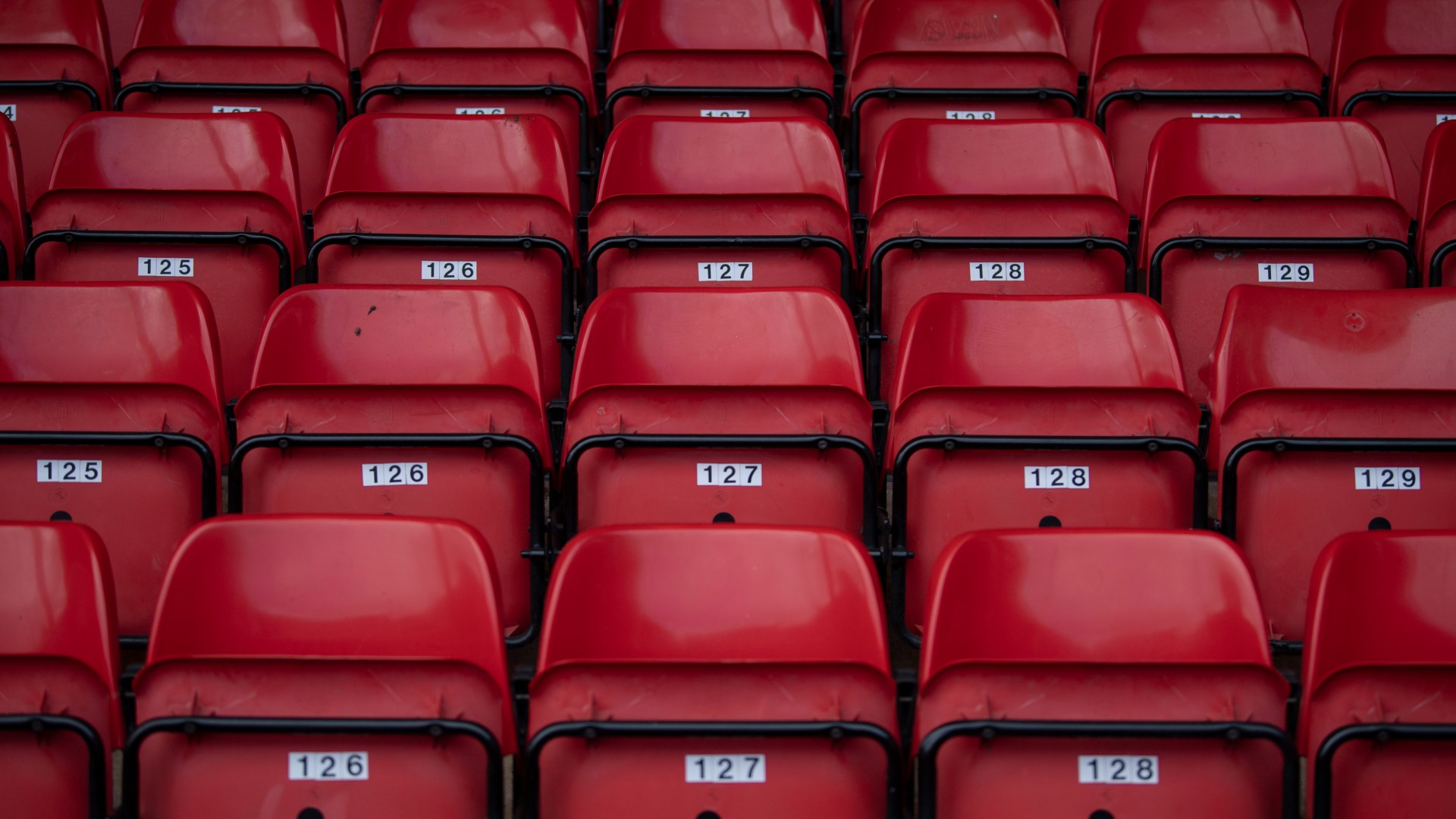English football and the etiquette of leaving the stadium early
The belief that 'true fans stay to the end' does not always apply

A free daily email with the biggest news stories of the day – and the best features from TheWeek.com
You are now subscribed
Your newsletter sign-up was successful
Sheffield United fans voted with their feet during this week's demolition by Arsenal, with some heading for the stadium exits after just 15 minutes.
The Blades were already 0-3 down with only a quarter of an hour played when the sight of home supporters leaving Bramall Lane "sparked a mix of sympathy and derision from rival fans" on social media, said The Mirror.
There were similar scenes during Arsenal's recent win over West Ham, when Hammers fans flooded out of the London Stadium before the half-time whistle, as their team slumped to 4-0 down. The mass walk-out was condemned by former Blackburn and Celtic striker Chris Sutton on the Daily Mail's "It's All Kicking Off" podcast. "If you're a football supporter, you support your team through thick and thin, don't you?" said Sutton.
The Week
Escape your echo chamber. Get the facts behind the news, plus analysis from multiple perspectives.

Sign up for The Week's Free Newsletters
From our morning news briefing to a weekly Good News Newsletter, get the best of The Week delivered directly to your inbox.
From our morning news briefing to a weekly Good News Newsletter, get the best of The Week delivered directly to your inbox.
'True fans stay to the end'
There is "an unwritten rule in football", said the Mail's Kathryn Batte, that "to be a 'true' fan, you must stay until the end – no matter what".
So-called "early-leaver syndrome" tends "to afflict those who are either seriously peeved about an inept performance", said Amy Lawrence in The Guardian, "or those who spent quite a lot of any second half worrying about masses of people, claustrophobic transport, endless traffic jams".
It is also a distinctly English phenomenon and is much less common on the Continent. This cultural difference was highlighted by Jürgen Klopp soon after taking over at Liverpool in 2015, when he complained about feeling "pretty alone" after many of his supporters left Anfield in the 82nd minute in what would end up being a 2-1 defeat by Crystal Palace. "We decide when it is over," Klopp said at the time. "Between 82 and 94 [minutes] you can make eight goals if you like."
A recent survey by YouGov for Betfair ranked the Premier League supporters who were most likely to leave a match early, with the so-called "top six" occupying the top six spots, said TalkSPORT. By contrast, Wolverhampton Wanderers, Sheffield United, Nottingham Forest and Aston Villa had the most loyal supporters, who stay for the full 90 minutes regardless of their team's performance.
A free daily email with the biggest news stories of the day – and the best features from TheWeek.com
'Walking out is a form of protest'
"There are a lot of things in football that do not make sense," said Batte in the Mail. The notion that fans should stay to the end, "even if your team is being humiliated, even if it feels as if they are not trying and even if it is painful to watch", is one of them. And "that's without taking into account how long your journey home is".
"To attend a game and then leave when the result is still not certain just defies common sense," said Mark Segal in The Guardian in 2013. But if your team is getting demolished, "in my mind, it's actually the people who stay who are doing more damage", he argued. "Walking out is a form of protest. You are saying to the players that they do not deserve your support."
Some fans have had cause to regret leaving early, however. Selina Travis and her father left Manchester City's game with QPR in 2012 with the Sky Blues 2-1 down and arch-rivals Manchester United set to win the league. City went on to turn the game around in the last few moments, to win their first Premier League title in decades.
"The thing about missing the goals," Travis told The Athletic, "it's become such a fun story that it's almost become part of the mythology of the day for me. To the point that I don't really regret it – the only thing is that I've been going to City with Dad since 1994 and we missed that moment together."
-
 What is the endgame in the DHS shutdown?
What is the endgame in the DHS shutdown?Today’s Big Question Democrats want to rein in ICE’s immigration crackdown
-
 ‘Poor time management isn’t just an inconvenience’
‘Poor time management isn’t just an inconvenience’Instant Opinion Opinion, comment and editorials of the day
-
 Bad Bunny’s Super Bowl: A win for unity
Bad Bunny’s Super Bowl: A win for unityFeature The global superstar's halftime show was a celebration for everyone to enjoy
-
 Indiana beats Miami for college football title
Indiana beats Miami for college football titleSpeed Read The victory completed Indiana’s unbeaten season
-
 Who is to blame for Maccabi Tel Aviv fan-ban blunder?
Who is to blame for Maccabi Tel Aviv fan-ban blunder?Today’s Big Question MPs call for resignation of West Midlands Police chief constable over ‘dodgy’ justification of ban from Aston Villa match, but role of Birmingham Safety Advisory Group also under scrutiny
-
 Amorim follows Maresca out of Premier League after ‘awful’ season
Amorim follows Maresca out of Premier League after ‘awful’ seasonIn the Spotlight Manchester United head coach sacked after dismal results and outburst against leadership, echoing comments by Chelsea boss when he quit last week
-
 Coaches’ salary buyouts are generating questions for colleges
Coaches’ salary buyouts are generating questions for collegesUnder the Radar ‘The math doesn’t seem to math,’ one expert said
-
 Five years after his death, Diego Maradona’s family demand justice
Five years after his death, Diego Maradona’s family demand justiceIn the Spotlight Argentine football legend’s medical team accused of negligent homicide and will stand trial – again – next year
-
 Libya's 'curious' football cup, played in Italy to empty stadiums
Libya's 'curious' football cup, played in Italy to empty stadiumsUnder The Radar 'Curious collaboration' saw Al-Ahli Tripoli crowned league champions in Milan before a handful of spectators
-
 Crisis? What crisis? How Lionesses made the Euros final against the odds
Crisis? What crisis? How Lionesses made the Euros final against the oddsAmid injuries and questions about form, England's women are one step away from glory
-
 Sweden's Soft Hooligans: the fans who brought 'good vibes' to the Euros
Sweden's Soft Hooligans: the fans who brought 'good vibes' to the EurosUnder the Radar Formed to create a fun fan atmosphere, the Swedish football supporter group has been bringing the party to the championship